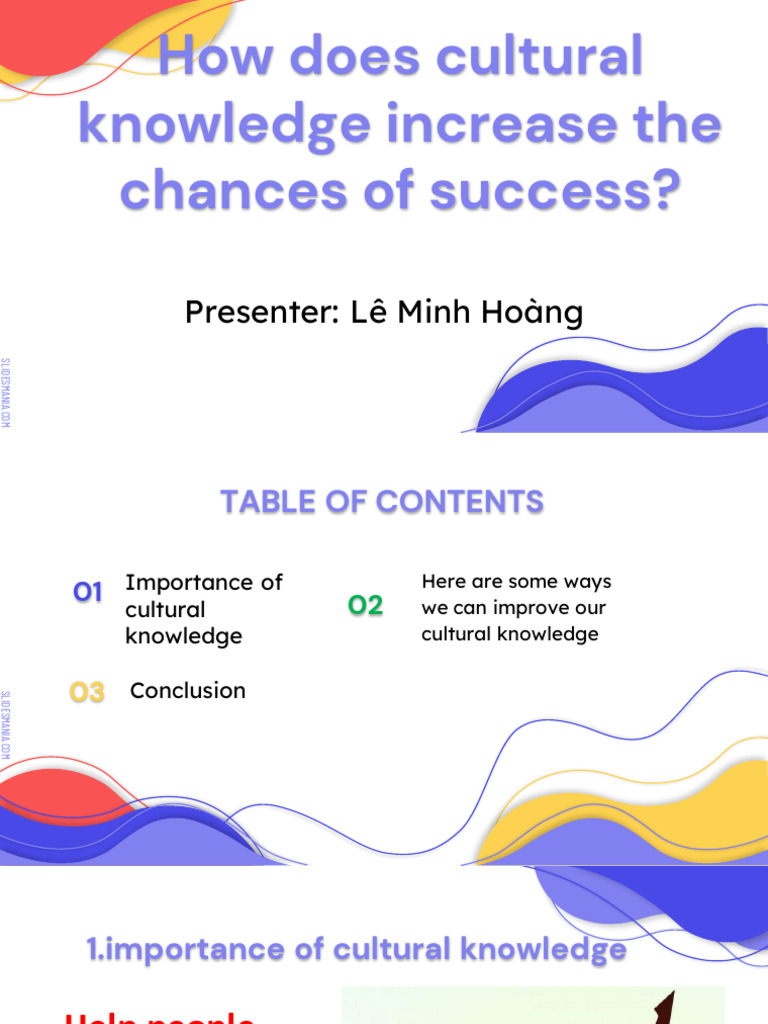Understanding how resources promote cultural knowledge is essential in today’s globalized society. In an era characterized by rapid technological advancements and interconnectedness, the exchange of information has never been more crucial. This phenomenon occurs across various platforms, including digital media, academic publications, community initiatives, and educational curricula.
The digital age has accorded unprecedented access to an array of resources that bolster cultural knowledge. Online platforms burgeon with articles, documentaries, and interactive experiences that showcase diverse traditions, histories, and practices from around the world. For instance, when users engage with multimedia presentations or podcasts that delve into distinct cultural narratives, they are not merely passive recipients of information; they actively participate in cultural discourse. This engagement fosters a deeper understanding and appreciation of global diversity.
Text-based content remains a fundamental resource for enhancing cultural awareness. Scholarly journals and reports often present rigorous analysis on cultural dynamics, exploring topics from ethnohistory to post-colonial studies. For example, reading ethnographies allows individuals to grasp the intricacies of community behaviors, belief systems, and societal structures. This in-depth examination cultivates an appreciation for the subtleties that characterize various cultures, equipping readers with a more nuanced worldview. The intellectual rigor involved in digesting such texts encourages critical thinking, prompting readers to question preconceived notions and stereotypes.
Visual media, such as documentaries and films, play a pivotal role in disseminating cultural knowledge. Through stunning cinematography and poignant storytelling, these visual narratives transport viewers into the heart of different cultures. A well-crafted documentary can illuminate long-standing practices, rituals, and struggles within a community, enabling viewers to forge emotional connections. This emotional resonance is powerful; it engenders empathy and ignites conversations about cultural preservation and respect. Furthermore, visuals can serve as a tool for advocacy, championing cultural rights and encouraging the conservation of endangered traditions.
Social media platforms also contribute significantly to cultural knowledge dissemination. They provide interactive venues for individuals to share and discuss their cultural heritages. The ephemeral nature of social media encourages immediate engagement, allowing users to participate in trending conversations about cultural identity and contemporary issues. For instance, platforms like Instagram or TikTok enable users to showcase culinary traditions, artistic expressions, and local festivals, thereby democratizing cultural knowledge. However, it is crucial to approach this with a discerning eye; not all representations are accurate or respectful, underscoring the importance of critical engagement with such content.
Educational institutions also play a vital role in promoting cultural knowledge through structured educational programs. By incorporating multicultural curricula, schools can foster an environment of inclusivity and understanding. History classes that cover a range of perspectives—rather than a singular narrative—allow students to engage with the complexities of cultural identities. This academic framework not only broadens knowledge but also nurtures respect for diversity from a young age, instilling values of tolerance and global citizenship.
Moreover, workshops and seminars led by cultural experts can provide immersive experiences. Participants can witness live demonstrations of traditional crafts, cooking techniques, or music performances. These activities not only convey knowledge but also encourage active participation, forging a tangible connection between individuals and the cultural practices being shared. This experiential learning can deepen the understanding of cultural significance and the societal contexts within which these practices exist.
Community initiatives offer another avenue for cultivating cultural knowledge. Local festivals, art exhibitions, and cultural exchange programs enable individuals to engage directly with diverse cultures. By fostering interaction between different communities, these initiatives help dismantle barriers and challenge stereotypes. They present opportunities for individuals to learn through dialogue, share experiences, and embrace cultural differences. Such engagements often lead to collaborative projects that honor cultural practices while promoting social cohesion.
In addition to these resources, literature plays an indispensable role in conveying cultural narratives. Literature from various cultures allows readers to experience the world through different lenses. Reading novels, poetry, and short stories can provide insights into the values, struggles, and joys of other cultures. The transformative power of literature lies in its ability to transcend borders, creating a shared human experience that resonates universally.
However, it is vital to recognize the importance of representation in all these resources. When cultural knowledge is shared, it should be done authentically and ethically. This means respecting copyright, attributing sources appropriately, and ensuring that cultural expressions are not appropriated without acknowledgment of their origins. Cultivating cultural knowledge demands an ethical responsibility to honor the voices and stories being told.
As the world continues to grapple with globalization and climate change, cultural knowledge becomes increasingly vital. Understanding the cultural dimensions of environmental issues allows for nuanced discussions about sustainability, conservation, and community resilience. Engaging with diverse cultural perspectives elucidates the intertwining of social justice and environmental stewardship, prompting holistic approaches to global challenges.
In conclusion, resources that promote cultural knowledge offer invaluable pathways for fostering understanding and appreciation of the world’s diverse cultures. Whether through digital content, scholarly articles, visual media, or community engagement, each of these avenues plays a critical role in our collective journey towards cultural awareness. As individuals, it is our responsibility to engage with these resources thoughtfully and critically, promoting inclusivity and respect for diversity in every facet of society.
